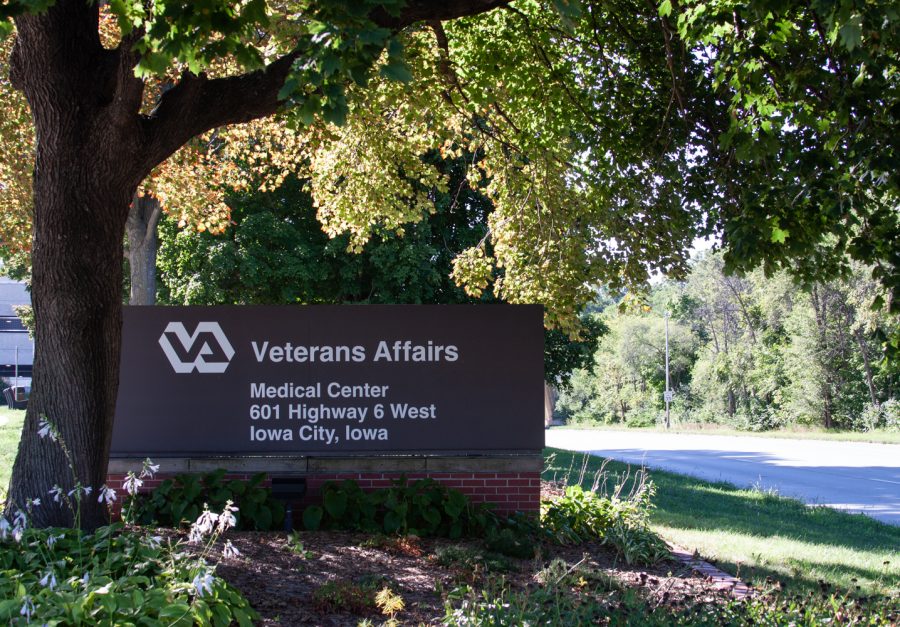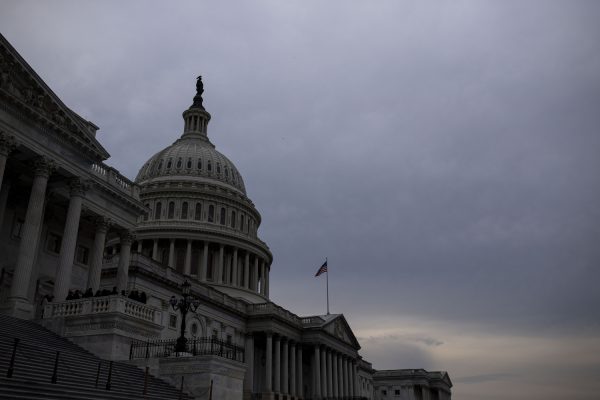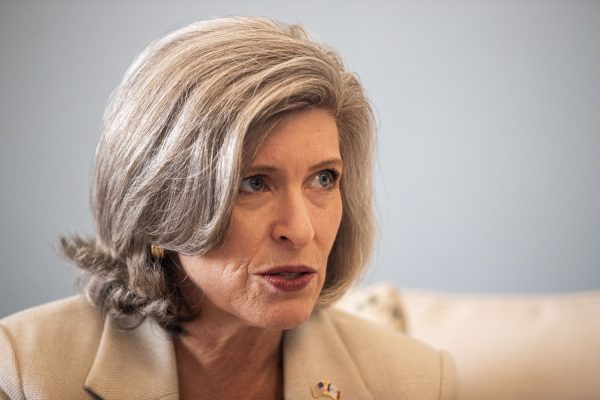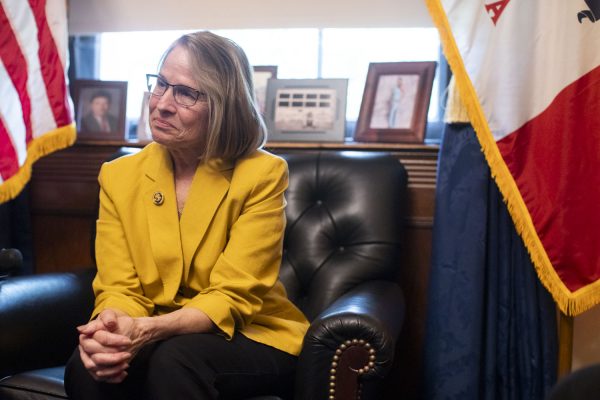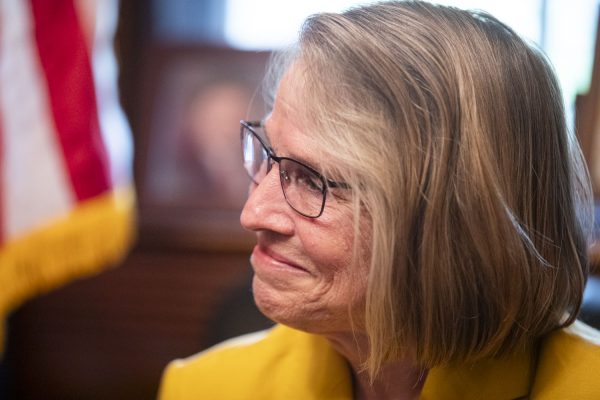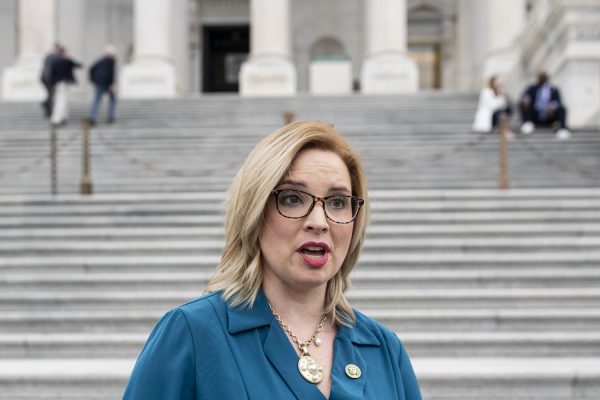Rep. Miller-Meeks pushes for veteran mental health hearing, crisis line improvements
Rep. Mariannette Miller-Meeks, R-Iowa, is working on legislation to improve veteran mental health services as VA providers see an uptick in veterans seeking mental health care.
The outside of the Veteran Affairs Medical Center on Monday, Sept. 6, 2021.
September 12, 2021
Nationwide, more veterans are seeking mental health assistance, feeling the impact of the U.S. withdrawal from Afghanistan.
There has been a recent nationwide uptick in Veteran Crisis Line referrals, said Rob Otto, a veteran and suicide prevention coordinator in the Iowa City VA Health Care System.
Otto said images from Afghanistan, such as people at the Kabul airport clinging to aircrafts, could exacerbate post-traumatic stress disorder, depression, or feelings of moral injury. Otto said VA mental health workers are also seeing veterans struggle with isolation, anxiety, and increased alcohol and substance use.
“For some, it’s kind of an existential crisis. But there are some that are saying, ‘Well, it’s about time we got out of there.’ And then there are some that also are saying, ‘Well what were we doing there? Why did we go there in the first place?’ So it’s really a mixed bag, it’s all over the place, but definitely we have seen an impact both mentally and emotionally, from the events in Afghanistan,” Otto said.
Rep. Mariannette Miller-Meeks, R-Iowa, enlisted in the U.S. Army in 1971 and served as a nurse and doctor for 24 years. She said that community exists among veterans beyond party lines and that very few veterans felt the timeline of the withdrawal of troops from Afghanistan was appropriate, especially with Americans and Afghan allies who hadn’t been extricated from Afghanistan.
“I can tell you the number of veterans who have contacted me is extraordinary. They’re angry, they’re dismayed, they’re disheartened — they feel betrayed,” she said. “I feel betrayed as a veteran of the Vietnam War era.”
Miller-Meeks joined other Republican lawmakers in calling on the Veterans Affairs Chair Rep. Mike Takano, D-California, to hold a hearing on the short and long term implications that the Afghanistan withdrawal has had on veterans’ mental health and to ensure veterans are aware of the resources the VA can provide them.
RELATED: Iowa Republicans blast Biden’s vaccine mandate
Miller-Meeks also co-sponsored a bipartisan and bicameral piece of legislation to improve the Veteran Crisis Line. She said her staff is working on developing legislation to change the requirement that veterans have to live 40 miles away from a VA facility to receive care locally.
She said the impact of the Afghanistan withdrawal, as well as the 20th anniversary of 9/11 on veterans’ mental health has been recognized in a bipartisan fashion.
“For veterans — the Vietnam war veterans, the Iraq and Afghanistan veterans — this is extraordinarily difficult for them. Their PTSD has worsened, and their mental health has been challenged,” Miller-Meeks said.
Otto said veterans and loved ones concerned about a veteran in their life can use the Veteran Crisis Line, 1-800-273-8255. Other resources for veterans in need of assistance include the VA’s Reach Out campaign, MaketheConnection.net, VA mental health services, Vet Centers, and County Veteran Service Officers.
He added it does not matter where veterans reach out, just that they seek help if they are struggling.
“A lot of veterans, myself included, might be kind of reticent to reach out for help because sometimes asking for help is largely frowned upon, it could be considered as a sign of weakness, or if it’s considered selfish, even,” Otto said. “Basically, in the military it’s all about the mission, it’s all about the team and an individual’s interests and safety and health and wellness, would often take a backseat. I think the message is it’s okay not to be okay, and it’s a good thing to reach out for help.”



